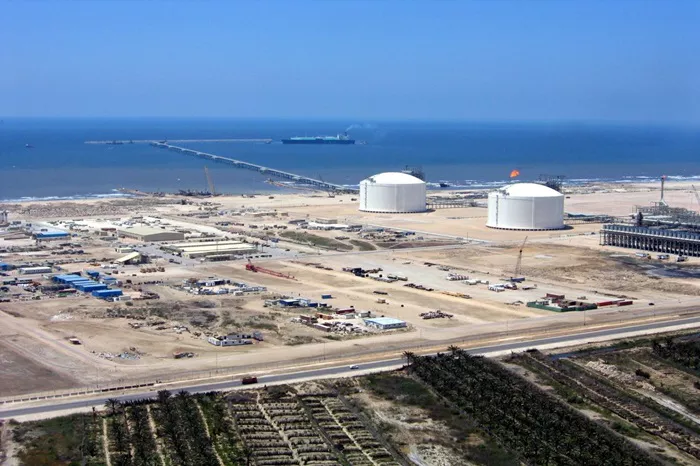For decades, Egypt has been a significant player in the global energy market, serving as a major producer of oil and gas while functioning as a crucial transportation hub for energy products. Despite facing disruptions from national political unrest and geopolitical challenges, Egypt continues to assert its position as an energy powerhouse in Africa. Recently, the government has revealed plans to enhance its exploration activities for natural gas and increase investments in renewable energy capacity in the coming years.
As the second-largest producer of liquid fuels among non-OPEC countries in 2023, trailing only Angola, Egypt also ranked as Africa’s second-largest natural gas producer in 2022, following Algeria. The growth of Egypt’s gas production can be attributed to the launch of operations in several key offshore fields, including the Zohr field. However, forecasts indicate a decline in gas production in the coming decades as the Zohr field matures and due to a series of recent exploration setbacks.
Egypt plays a pivotal role in international energy transportation, operating the Suez Canal and the Suez-Mediterranean (SUMED) Pipeline, which connect global energy markets, primarily linking the Persian Gulf with Europe and North America. Additionally, Egypt is the only country in the Eastern Mediterranean with operational liquefied natural gas (LNG) export capacity and the capability to import natural gas from other nations, reinforcing its status as an LNG hub.
In line with its green transition, Egypt had set a renewable energy target of 42 percent ahead of the COP 27 climate summit, which it hosted in 2022. This target was later raised to 58 percent by 2040. However, this past October, Petroleum Minister Karim Badawi announced plans to revise the 2040 renewable energy target downward to 40 percent, refocusing efforts on expanding the natural gas sector.
“This is a message to all of us to work together to increase discoveries and attract more investments through the bids being offered for exploration, aiming to achieve new discoveries in the region, which holds more wealth, particularly natural gas,” Badawi stated during the inaugural session of the Mediterranean Energy Conference 2024.
In recent years, many international oil and gas companies have severed ties with Egypt due to hard currency shortages, leading to significant debts for the North African state. Badawi aims to restore these relationships, having met with key industry players since taking office in July. Italy’s Eni has announced plans to drill additional wells in the Zohr field in early 2025 to enhance output.
Despite the adjustments in renewable energy targets, ambitious green energy projects are already in progress. In September, AMEA Power revealed plans to develop Egypt’s largest solar photovoltaic (PV) project, which will increase its wind and solar energy capacity to 2 GW, alongside 900 MWh of battery energy storage systems. The firm intends to invest $800 million in two significant projects in the Benban area of the Aswan Governorate, including a 1 GW solar PV plant and a 600 MWh battery storage project. Positioned within the global “sun belt,” Egypt benefits from an average of 9 to 11 hours of sunlight daily, making it ideal for solar energy generation.
Another focal point for Egypt is green hydrogen. In March 2024, the government set a goal of attracting $40 billion in investments in the green hydrogen and clean technology sectors over the next decade, signing seven memoranda of understanding with various international partners. These projects are to be located in the Suez Canal Economic Zone, with $12 billion earmarked for the pilot phase and an additional $29 billion to support ongoing operations, according to Egypt’s Planning Minister, Hala el-Said.
Egypt aims to position itself as a hub for green hydrogen and renewable energy, leveraging its strategic location between Asia, Africa, and Europe. As countries invest in green hydrogen projects and explore clean fuels as alternatives to fossil fuels, Egypt’s abundant solar resources could enable it to emerge as a major producer and exporter of clean energy.
Looking ahead, Egypt is set to ramp up its natural gas exploration activities, bolstered by both public and private funding, as confirmed by the Petroleum Minister. This shift has prompted a reduction in renewable energy targets, but with significant potential to enhance its green energy capacity and ongoing projects, Egypt is expected to diversify its energy mix substantially in the coming decades.
Related topic:
How Much Does It Cost to Switch from Oil to Gas?
Natural Gas Prices Experience Fluctuation Amid Support Levels

